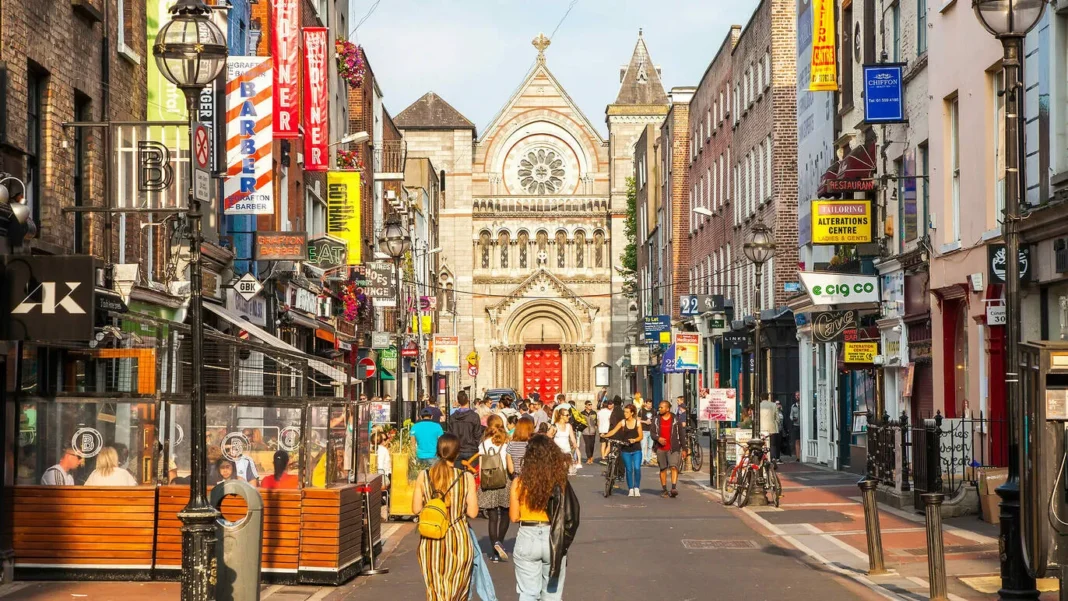According to Remote’s Global Work-Life Balance Index, Ireland ranks highest in Europe thanks to progressive parental leave policies, public happiness, and shorter working weeks.
LONDON — Whether you’re a dedicated professional or a champion of personal peace, the pursuit of a healthy work-life balance remains universally essential. In today’s world, where burnout and mental health challenges are increasingly prevalent, countries are being measured not just by GDP—but by how well they support the well-being of their workforce.
This year, Ireland has officially been named the best European country for work-life balance, according to the 2025 edition of the Global Work-Life Balance Index, published by Remote, a global HR solutions platform.
While New Zealand topped the global rankings overall, Ireland scored highest among all European nations, achieving an impressive 81.17 out of 100.
🌿 Why Ireland Leads Europe
Ireland’s top position reflects a comprehensive approach to employee well-being, blending economic policy with cultural ethos. Key highlights include:
- Generous Maternity Leave: Up to 26 weeks of paid leave at 70% of the employee’s income, placing Ireland among the most progressive in Europe for parental support.
- Workplace Culture: The report emphasizes Ireland’s balance of “hard work and community spirit,” fostering collaboration over competition.
- Public Well-being: Ireland scored highly in happiness metrics, safety, and inclusivity.
📊 Europe’s Top 10 Countries for Work-Life Balance (2025)
According to the index, which analyzed 60 of the world’s top GDP economies across nine key metrics—including paid leave, healthcare access, LGBTQ+ rights, safety, and average working hours—these are Europe’s top performers:
- Ireland – Score: 81.17
- Belgium – Score: 75.91
- Germany – Score: 74.65
- Norway – Score: 74.20
- Denmark – Score: 73.76
- Spain
- Finland
- United Kingdom
- Netherlands
- Portugal
💼 What Makes Belgium and Germany Stand Out?
Belgium, in second place, offers strong legal protections, including high statutory sick pay and maternity leave. Belgian employees work an average of just 34.1 hours per week—among the shortest in Europe—and benefit from one of the continent’s highest minimum wages. Belgium also scored well on public happiness (6.91/10).
Germany, ranking third, is well-known for its efficient labor laws, generous social security system, and respect for workers’ downtime, reflected in its protected “quiet hours” and widespread observance of Sundays as non-working days.
🧭 How the Index Works
Remote’s Global Work-Life Balance Index scores each country out of 100, based on a composite of:
- Statutory annual leave
- Paid maternity leave
- Sick leave policies
- Healthcare quality
- Public safety
- Happiness ratings
- LGBTQ+ inclusivity
- Average working hours per employee
Full methodology and country-by-country data are available on Remote’s official website (external link).
🌐 A Broader Global Perspective
Globally, New Zealand was ranked #1, praised for its strong labor protections, mental health services, and cultural prioritization of leisure and nature. Other high-performing nations include Norway, Australia, and Canada.
Notably, the study also takes into account the pressures of overtourism, cost of living, and post-pandemic shifts in workplace flexibility, reflecting the new realities of hybrid and remote work cultures.
📌 Final Thoughts
As companies and workers alike rethink the meaning of productivity and well-being, countries like Ireland, Belgium, and Germany are emerging as leaders—not just in economics, but in quality of life. For professionals seeking more than just a paycheck, these nations offer balance, dignity, and time to live.





